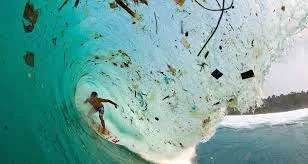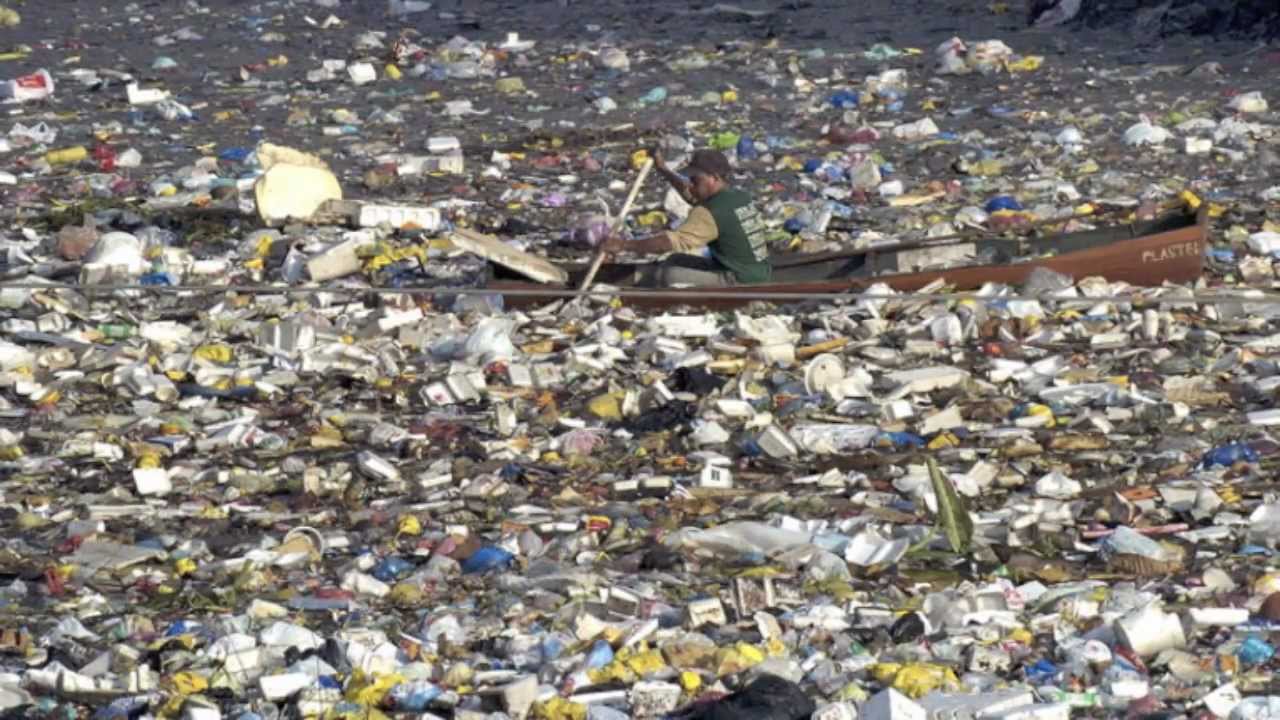By The Landlord
“When plastic comes of age it shall clog the arteries of those who invented it … It's when we go fishing for plastic that we wonder where all the fish have gone.” – Anthony T. Hincks
“You know, let's put it this way, if all the people in Hollywood who have had plastic surgery, if they went on vacation, there wouldn't be a person left in town.” – Michael Jackson
“She got her looks from her father. He's a plastic surgeon.” – Groucho Marx
“I've had so much plastic surgery, when I die they will donate my body to Tupperware.” – Joan Rivers
It’s multi-shaped, everywhere, and incredibly flexible and versatile, but it’s also an eco nightmare. We’ve lived with it and used it all of our lives. Plastic is something that has come to define the human race – it brings out the best and worst in us, in our ideas, our inventions and our pollution.
Plastic is any synthetic or semi-synthetic organic compound that can be moulded into solid objects. It’s colourful, can be attractive, affordable, and simply all too easy to use. It comes in many forms. It’s vinyl records, or polycarbonate CDs or radios we listen to. It’s in the instruments we play. It’s nylons (or polyamides), polyester clothing materials, polyethylene bottles or furniture, polypropylene bottle tops, straws, food containers, polystyrene packaging, and polythene bags. These and many other words crop up in song lyrics. It’s in the clothes we wear, our glasses or contact lenses, our hair brushes, our toothbrushes, in bone replacements. We are becoming plastic, and that’s even without the surgery. And it will survive us.
And, as pollution increases, as proven by many new reports, from fish to water analysis, small quantities, we are gradually eating and drinking it too. As the writer Anthony T. Hincks jokes: “I really hope that plastic starts coming in different flavours because I would like to have a bit of variety in my food.”
But in our broader human history, while now utterly dominant, plastic is still relatively new. It emerged in the 20th century to became a cheaper replacement for other materials such as wood, stone, horn and bone, leather, metal, glass, and ceramics, and as the catalyst for millions of new products and industries. The first one in widespread use was bakelite, invented in New York in 1907 by Leo Baekeland, and it became the go-to material for telephones, light switches, radios, snooker, pool or bowling balls. Not just black, as on those classic telephones, it could also come in lots of great colours such as on this beauty:
Tune in: early bakelite radio
Or how about a watch?
Plastic watches don't have to look cheap
But from the best and brightest to the worst. It has been polluting land and oceans for a long time, and it is only recently, thanks to the likes of David Attenborough, that it is truly entered the public consciousness, hopefully made more obvious, but not worse, as people enjoy this summer’s beach holidays. Plastic is swamping us, whether you’re at leisure:
In the eye of the ... plastic
Or trying to make a living:
Canoeing in plastic, with a small amount of water
But there is very gradual change. Bags of it have been banned in places as diverse as Penzanze and Mumbai, and some shops, and plastic straws are even disappearing from McDonald’s to be replaced by paper ones, but don’t let that token gesture fool you, it’s only in the UK, and that’s a minuscule part of far bigger picture of environmental damage. But we are all culpable. Recently the town of Chepstow in Wales, admirably proclaimed itself plastic-free, but did so with a plastic banner. Oops.
Whoops. A plastic sign (of the times)
So it’s hard to escape the stuff. We are literally swimming in it. And there are still too many vested interests in keeping it. But it’s not just bags, or indeed containers, but also lots of what’s inside them, as ― Susan Freinkel writes, in Plastic: A Toxic Love Story:
“For all the environmental troubles single-use shopping bags cause, the much greater impacts are in what they contain. Reducing the human footprint means addressing fundamentally unsustainable habits of food consumption, such as expecting strawberries in the depths of winter or buying of seafood that are being fished to the brink of extinction.”
But this is still a music blog, and let’s also look at some of the more creative ways we deal with plastic in all it’s forms. But how is it represented in song? Fake, cheap, inferior, comical, colourful or weirdly fashionable? All of the above. Mention of any plastic related words in lyrics are a way into this topic, and I don’t want to spoil your fun, but there are many from divese artists, as the the Beatles to the Buggles, Sonic Youth to New Order, The Flaming Lips to Ladytron, Radiohead to the Kinks, Sly Stone to Frank Zappa, the Temptations to Public Enemy, Gorillaz to the Who and much more.
Plastic of course also has a wider meaning. “Human behaviour is incredibly pliable, plastic,” says American psychologist Philip Zimbardo. And that plasticity brings creativity, but also shallowness. Walking in a rather fragile way in the Bar now is Andy Warhol, who sighs, and then suddenly smiles, uttering: “I love Los Angeles, and I love Hollywood. They're beautiful. Everybody's plastic, but I love plastic. I want to be plastic.”
Meanwhile actress Cate Blanchett has a darker, jokier side to the plastic world of fame. “You know you've made it when you've been moulded in miniature plastic. But you know what children do with Barbie dolls – it's a bit scary, actually.”
But let’s go back to the materials. Plastic is visual, and art and fashion also fuel and inspire music. Plastic arts are a broad term that doesn’t just mean the use of plastic itself, but any material that can be moulded or sculptured. But from South America to Australia, New York to the UK there’s also oodles of art made from plastic. Recycled material gets a simple message across:
Angela Haseltine Pozzi – Washed Ashore
Gilles Cenazandotti – Plastic Beach
Alejandro Durán – Brotes (Shoots)
And recycled plastic fashion can vary from black bin bag comical monstrosities to something rather better, such as this:
John Petrey plastic dress sculpture
But that's enough from me, now to your nominations. Returning to be this week's beachcombing musical expert, I'd delighted to welcome back the most excellent EnglishOutlaw. Gather your plastic-related songs, wherever you may find them, and place them in comments below in time for our deadline on Monday at 11pm UK time. I've now doubt that next Wednesday they will be recycled and fashioned into a beautiful and thoughtful playlist sculpture.
New to comment? It is quick and easy. You just need to login to Disqus once. All is explained in About/FAQs ...
Fancy a turn behind the pumps at The Song Bar? Care to choose a playlist from songs nominated and write something about it? Then feel free to contact The Song Bar here, or try the usual email address.










